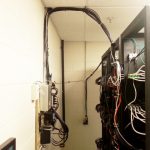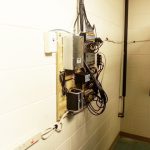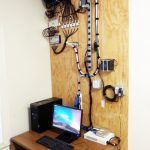In general, smart devices increase the sense of security and convenience in our lives and help us to do more, more easily. At the same time, we have all heard stories of hackers using baby monitors to spy on our children or breaching our data and stealing identities, wreaking financial havoc. While these stories may make you worry about using your smart devices, there are ways to protect yourself and restore your confidence in smart technology and its role in your life.
Understanding the Risks
It is common to hear cybersecurity experts refer to smart home technology as “The Internet of Things” (also cal IoT). Understanding that each of your smart devices actually acts as a networked computer, just like the PC you use to access the internet, can help you to understand how and why you need to protect yourself. Your smart refrigerator, can opener, litter box, and television all collect information continually, making it possible for your home network to be accessed by any hacker who knows how to exploit a device’s vulnerability. Most devices rely on the security of your Wi-Fi router to protect them from infiltration. Some of the most often attacked devices include:
- Outdoor devices like garage door openers, wireless doorbells, and smart sprinklers. Such devices often lack support or security protocols, making then accessible to any hacker in the street with a computer or Wi-Fi transmitter.
- Devices inside your home that are controlled by an app on your phone or PC. These include smart switches, light bulbs, security cameras, locks, thermostats, baby monitors, and personal home assistants like Alexa. Such devices often have weak security protocols and non-secure setting configurations.
Hackers are usually seeking information about your online accounts and personal information that they can use for financial gain. When they hack simpler devices like your refrigerator, they are looking for a way into your network to gather more impactful information, including information about your bank account and your identity. Hackers may also turn off security cameras to facilitate burglary, or use monitors and cameras to invade your privacy in more personal ways. In many cases, devices are hacked without the user knowing about it at all. Some hackers will use your network to create a “botnet network” to conduct a more complex attack. These networks are used in dark web crimes and large-scale financial exploitation.
This may all seem rather scary as you grab a glass of water from your smart fridge and watch your Roomba vacuuming the living room, but there are plenty of ways to protect yourself from hackers and enjoy your smart technology, and many of them are relatively easy to implement. The following steps will help you secure your home and ensure that your smart devices will continue only working for you:
- Create secure passwords and change them often. Passwords are still the easiest and most effective defense to protect your smart devices. Always change the default password when you get a new device as soon as possible. Create passwords that are unique and would be difficult for anyone, even those you know well, to guess. Make sure to include numbers, letters, and a variety of lower- and upper-case letters. If you have trouble keeping track of your passwords, consider using a password manager like LastPass to help you remember the passwords you use.
- Register all your new devices with the manufacturer and stay up to date. The companies that create your smart devices and the software they use are continually creating updates to address bugs and security concerns as they arise. In most cases, if your device has become vulnerable to hacking, updates are available to protect you and prevent an attack.
- Be aware of app usage and permissions. Most apps will ask for permission to access your device. Be aware of what information they are requesting to access and how that affects your privacy. Don’t allow access to any information you don’t absolutely need to make available.
- Unplug your smart devices when you aren’t using them. If you are going on vacation, unplug smart appliances that you won’t be using while you’re gone. You may need to leave important devices like security cameras, video doorbells, and thermostats on, but you can unplug televisions, speakers, and robot vacuums to prevent security breaches.
- ALWAYS reset devices before throwing them away, selling them, or gifting them. Follow the manufacturer’s instructions to remove all of your data from a device if you intend to dispose of it. Even if you trust the next person who will receive the device, you may not be able to trust their network.
- Allow Sure Site to help you create a secure Wi-Fi network. Sure Site can help you to set up your network so that it is as secure as possible. Choose a network name that isn’t a hint to your location or that refers to your personal information. Have your network installed out of view, so that it can’t be easily located on your PC. You may even want to consider creating a separate Wi-Fi network just for your smart devices rather than bundling all your Wi-Fi access on your PC and phone. This separates your sensitive information from the router that controls your smart devices and makes it harder for hackers to steal your identity through your IoT devices. We will also set up a guest network for your visitors’ devices, so that only you can access your IoT devices and personal networks.
- Get professional installation from Sure Site. Our experienced team can help you set up your Wi-Fi network and configure your settings so that you are protected from hackers. Technicians will not only remind you of all the tips in this article and help you to implement them, but they can also hardwire your installation as needed and answer your questions about advanced security measures. A professional installation is the easiest and most effective way to protect your home and your devices.
If you are considering upgrading your home to include more smart devices, check out our blog post about Turning Your Home Into a Smart Home. If you are concerned about how your current smart home configuration may be vulnerable, call Sure Site today to learn more about our secure, whole-house Wi-Fi services. We can make your home safer and more convenient, so that it works for you without the risk.







